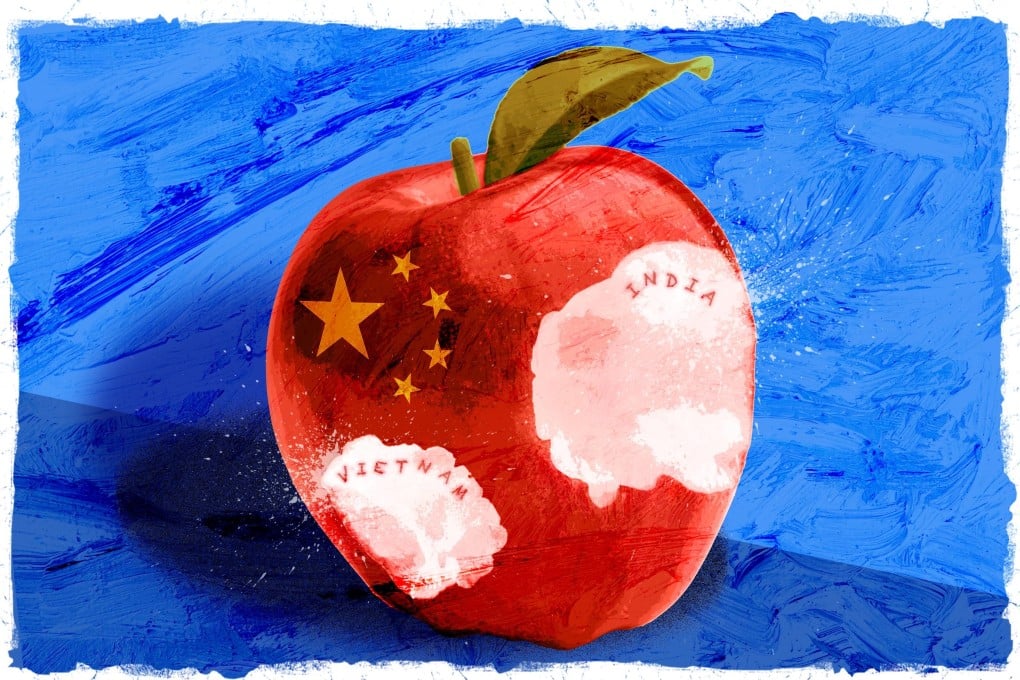Tech war: Apple looks to India, Vietnam as iPhone maker’s supply chain comes under the spotlight in US-China decoupling
- Apple reportedly cut back on orders citing weakening demand in potential blow to its Chinese suppliers that are heavily dependent on the US giant
- Analysts have lowered their shipment predictions across a range of Apple products

Neither Foxconn nor Apple has formally confirmed the shift. Yet the plan aligns with Apple’s strategy to make Vietnam the largest final assembler for its products outside mainland China. Taiwan’s Foxconn, also known by its corporate name Hon Hai Precision Industry, already has 60,000 people on staff in Vietnam, and announced a US$270 million investment last year to set up a new subsidiary there.
“The uncertainty of and dependency on China have really thrust the importance of knowing who your suppliers are, into the spotlight and into boardrooms”, said Sumit Vakil, the co-founder of Resilinc, a consultancy that provides advice on supply chain mapping, monitoring and resilience solutions. “There is no going back to how supply chains operated [before the onset of] Covid-19”.

Global manufacturers, which have helped to reinforce China’s reputation as “the world’s factory” for everything from cocktail umbrellas and clothing to aeroplane parts, have been reducing their reliance on China over the past few years, across a range of industries.